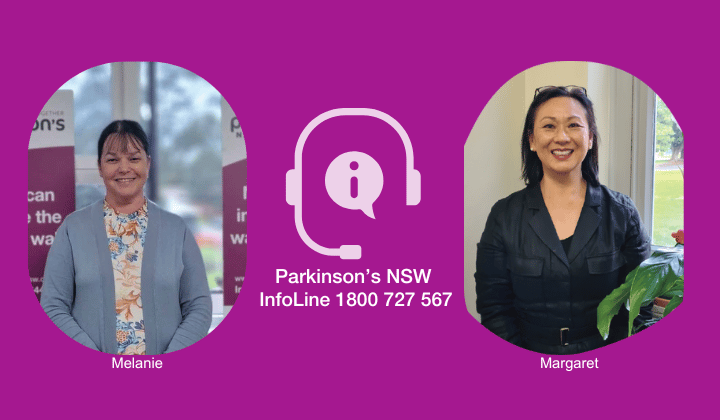‘Take 5’

11 ways to support a loved one with Parkinson’s
10th December 2024
Taming Parkinson’s Disease with Intelligent Brain Pacemakers
16th December 2024‘Take 5’

‘Take 5’
InfoLine ‘Top 5’ for December 2024
A monthly review of the top five topics raised by callers to the Parkinson’s NSW InfoLine.
The Parkinson’s NSW InfoLine (call 1800 727 567 9am-5pm M-F) is the single point of contact for people living with Parkinson’s, care partners, health professionals, and family members who require evidence-based advice, information, and connection with essential services.
This service gives you easy access to experienced Registered Nurses, an Allied Health professional with 20 years of prior experience in community pharmacy, counsellors, a qualified social worker, a specialised NDIS Advocate, connections to Support Groups and access to education seminars – all free of charge to the consumer.
1. Carer Stress
The holiday season can increase stress for carers, making it vital to prioritise self-care and seek support. Engaging with carer support groups, talking to a counsellor, or using respite care services can help to alleviate the pressure.
Tips for Managing Carer Stress | Parkinsons NSW
2. Diet and Nutrition
A well-balanced diet can aid in managing Parkinson’s symptoms – including energy levels, digestion, and medication effectiveness. For tailored advice, consulting a dietitian experienced in Parkinson’s is highly recommended. The InfoLine also has a nutrition guide that we can supply as a starting point.
Diets proven to boost the body against Parkinson’s | Parkinsons NSW
3. MRI-Guided Focused Ultrasound Treatment
This emerging treatment uses advanced imaging to target areas of the brain, offering potential benefits for managing certain symptoms of Parkinson’s. For more information on eligibility and availability, consult with a neurologist or Parkinson’s specialist.
4. Hallucinations
Hallucinations can be linked to medication or disease progression. To address this, it’s important to speak with your Movement Disorder Neurologist or a Parkinson’s nurse who can assess medications and suggest strategies for management.
Hallucinations in Parkinson’s | Parkinsons NSW
5. Falls
Falls are a major concern due to balance issues or freezing episodes. A physiotherapist with expertise in Parkinson’s can assist with exercises to improve balance and mobility, while occupational therapists can advise on home modifications or aids to reduce risks.
Tips on preventing falls. | Parkinsons NSW



